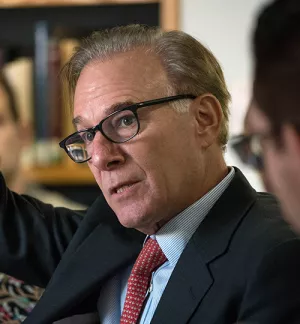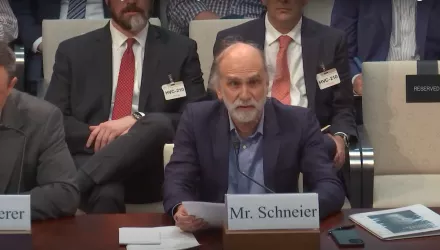President Obama had the wind at his back as he delivered the State of the Union speech Tuesday night: He spoke of a recovering economy, troops coming home, new investments in American education and jobs. It was a muscular, confident speech that took simple themes and elevated them to a broad message that the the country’s problems, as difficult as they are, are still soluble. Or, as he put it in the signature line of the speech, “We can fix this.”
In terms of details, Obama stayed relentlessly on message. There was so little that was really new or surprising in the State of the Union speech that perhaps the lack of novelty was the real news. President Obama said he wanted to build a strong middle class. He supported balanced deficit reduction, but didn’t have any new proposals. He called for “high-quality” pre-school education for all children, details to come.
Maybe the best thing about winning is that you don’t have to try as hard to make news. Obama has the Republicans on the run as it is. He didn’t give them a lot to work with in his speech Tuesday night, and he didn’t give them a lot to shoot at, either. He seemed relaxed, in command, and in that respect, entirely presidential. John Boehner, the scowling, beady-eyed speaker of the House of Representatives sitting behind him, seemed to embody the unhappy “party of no” that the Republicans have lately become.
The newsy bits in the speech were Obama’s still-vague plan for universal pre-school education, his increase in the minimum wage to $9 an hour by 2015, his support for a trans-Atlantic trade and investment agreement and his halving of troops in Afghanistan over the next year.
But this was a speech where the body language was more important than the words. Obama’s speech wasn’t triumphal, it wasn’t flashy, and it had few catchy phrases. But it was a confident address, and it made no concessions to the other side. Its appeal was simple and practical. “We are citizens,” Obama said near the end. In other words, we don’t have to live this way, with a broken political system and constrained choices. They’re fixable problems.
Obama even made the country’s intractable fiscal mess sound soluble. He didn’t offer new proposals, but he made clearer than in any speech I can recall that he’s willing to make real changes in Medicare and other entitlement programs to begin to get the deficit under control. He said he was willing to offer savings on Medicare that would equivalent to those proposed by the Simpson-Bowles commission. Now he should show the way by proposing those cuts, rather than throwing this rhetorical pledge into the miasma of congressional budget politics.
There’s a lot to be said for winning: As James Fallows predicted months ago in The Atlantic, getting re-elected gives the weight and validation of success to Obama’s past policies. He succeeds by standing still: He is ending the wars in Iraq and Afghanistan, so far without the dire costs that many predicted; the economy is recovering, as the financial markets tell us every day, not just in America but in Europe, too.
Give me lucky generals, Napoleon is supposed to have said, and the same could be observed of presidents. Obama seemed so unlucky four years ago, taking office when the U.S. economy was falling into a sinkhole, but he now has the good fortune to preside over the rebound. He gets to be chief executive at a moment when America discovers that it has abundant new sources of reasonably cheap energy and is a low-cost base for manufacturing–and when it occurs to people that maybe the country isn’t so destined for decline as it seemed a year or two ago.
The president also used the Ronald Reagan technique of citing popular heroes in his audience to illustrate his points. The scene of the 102-year-old voter who had stood in line for hours to cast her ballot, now trembling in the House gallery to accept the cheers of the audience, was exquisite political theater. And Obama’s emphatic call to act on gun control, with the relatives of victims of Newtown and other tragedies there in the chamber as witnesses to the horror, was very powerful. The Republicans, sitting on their hands, looked lost.
I still think Obama makes a mistake by not trying to lift his game—by not taking his presidency and leadership to a new level that might break the political dysfunction in Washington. But it’s hard to quarrel with success, or with good luck. This was a speech about the political equivalent of blocking and tackling—jobs and education, ending wars and improving security. No razzle-dazzle, but no fumbles, either. And delivered with a confidence that made you believe, at least Tuesday night, that yes, we can fix this.
Ignatius, David. “Obama’s Message: ‘We Can Fix This’.” The Washington Post, February 12, 2013





